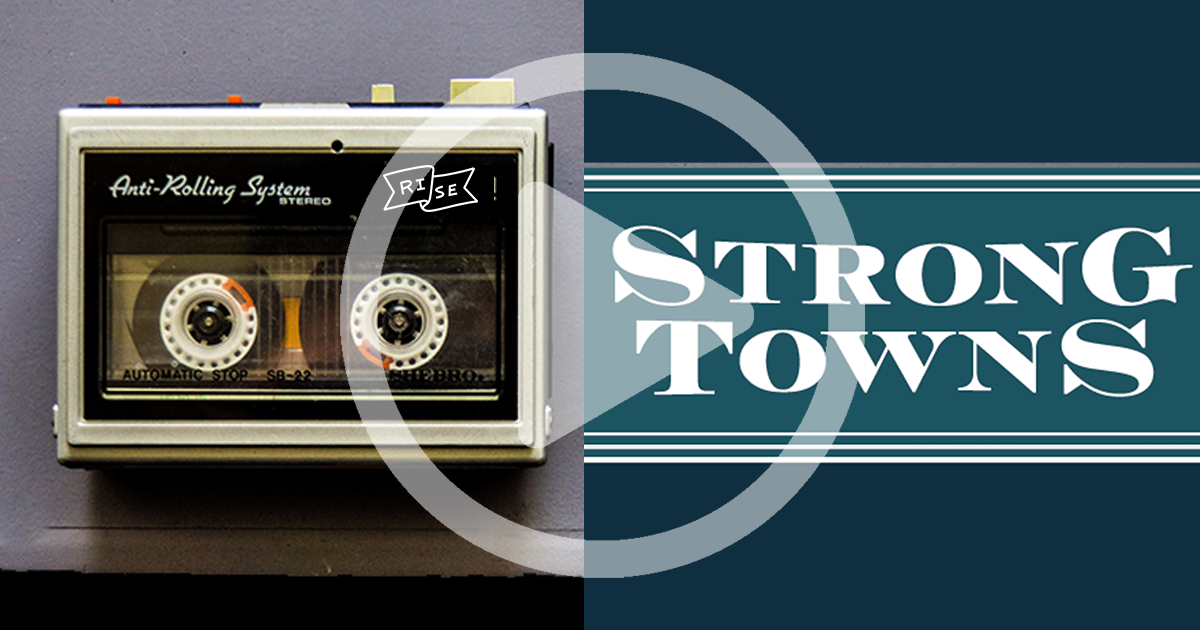By Kevin Heffernan
“Just because your city hasn’t declared bankruptcy doesn’t mean it’s not broke.”
Charles Marohn is a know-it-all. But when you’re engaged in debate or policy development for your town or city, sometimes it helps to cite a know-it-all who also happens to be a civil engineer. He’s sort of like that neighbor on your block club who stands in opposition to almost everything, and then after that thing moves forward anyways, and is a disaster, you’re like, “Oh… he was right.”
Marohn is the founder of Strong Towns, a growing advocacy organization you may be following on social media already that speaks out frankly about what’s right and wrong about development in cities. From cars and bikes to infrastructure and sprawl. From a simple blog, they’ve grown a nationwide membership, they tour, and they speak out.
The show covers a variety of topics loosely related to improving the finances of cities, towns and neighborhoods, growing sustainably instead of growing to survive, and in the process, making these places better to live in.
In particular, they sopeak out about the growth Ponzi Scheme. This idea that if you can just keep expanding your town or city, you’ll be fine. It’s short-sited and doesn’t consider the infrastructure support the municipalities have to finance for the rest of time like pipes and roads. What’s worse, we subsidize that growth with heavy tax breaks for developers just so that they do something, anything a politician can point to.
“When you lose money on every transaction, you don’t make up for it in volume” is such an obvious statement Strong Towns makes, and it will have you questioning Buffalo’s endless sprawl, and how new housing in Clarence and Lancaster is actually just dragging us down as a county and region while houses now go abandoned in the city as well as in Tonawanda, West Seneca, Lackawanna and Cheektowaga. What are we doing? We wrote about that (with some passion) in No Boundaries 2 (Sprawl hurting Buffalo and its suburbs).
We’ve cited Strong Towns in the past when we make arguments that we should stop subsidizing parking downtown out of fear, when we advocate for building protected bike lines, and when we talk about small, manageable changes to transit, rather than mega projects.
If you’re OK with the single person rambling podcast format (which I most often am not, but Marohn does bring on experts to interview occasionally), then this show provides insights on what has worked in other cities and towns, and educates on how city and regional finances actually work.
Episodes are long, and maybe best for long drives or big cleanups of your home, but they are critical pieces of education if your are the civic-minded sort.
Check ’em out.
Have a podcast you’ve been loving and we haven’t yet covered in our “Listen Up” series? Tell us about it! hey@risecollaborative.com.
Season 2 of LIFTED is about a month away! Get your ears and hearts ready!




